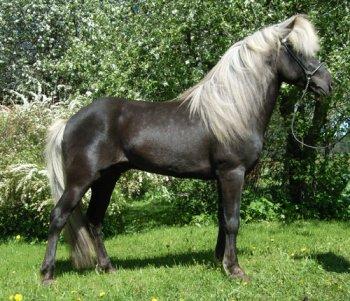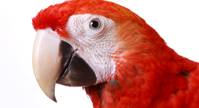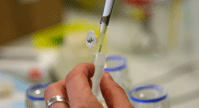Silver Dilution
Description:
 Silver Dilution is a dominant trait, so in order to inherit the trait, a horse requires only one parent to carry and pass on the gene. Somewhat similar to the agouti gene, the silver dilution gene will only alter black pigmented horses (Ee or EE) and has no effect on red pigmented horses (ee). The agouti gene alters the coat by controlling distribution of the black pigment whereas the silver dilution gene does so by diluting areas of black pigment.
Silver Dilution is a dominant trait, so in order to inherit the trait, a horse requires only one parent to carry and pass on the gene. Somewhat similar to the agouti gene, the silver dilution gene will only alter black pigmented horses (Ee or EE) and has no effect on red pigmented horses (ee). The agouti gene alters the coat by controlling distribution of the black pigment whereas the silver dilution gene does so by diluting areas of black pigment.
The effects of the silver dilution gene can vary greatly. Dilution by the silver gene on a horse with a uniform black base typically involves lightening of the mane and tail and a dilution of the body to a chocolate color, often dappled as well. A Bay horse carrying the Silver gene will usually have a lightened mane and tail, as well as lightened lower legs. It is important to know that although a red horse will not be diluted by the silver gene, it can be a carrier of the gene and thus potentially pass the gene on to its offspring.
Silver dilution has been identified in a number of horse breeds including the Quarter horse, the Rocky Mountain horse, the Icelandic horse, Morgans, Shetland ponies and the Miniature horse.
Test Results:
Animal Genetics offers DNA testing for silver gene. The genetic test verifies the presence of the silver gene and presents results as one of the following:
| Z/Z | Homozygous | Horse tested homozygous for silver dilution (Two copies of the silver allele detected). Black-based horses will have a chocolate body with flaxen mane and tail. Bay-based horses will have lightened lower legs and flaxen mane and tail. |
| n/Z | Heterozygous | Horse tested heterozygous for silver dilution (One copy of the silver allele detected). Black-based horses will have a chocolate body with flaxen mane and tail. Bay-based horses will have lightened lower legs and flaxen mane and tail. |
| n/n | Negative | n/n - Negative: horse tested negative for silver dilution. |
Submit a Sample for Testing:
To submit a sample for testing please click on ORDER and download a sample submission form. Then follow the sample collection and submission instructions.
Cost per sample is $25.00. Please see our Equine Fee Schedule for all equine testing rates.










